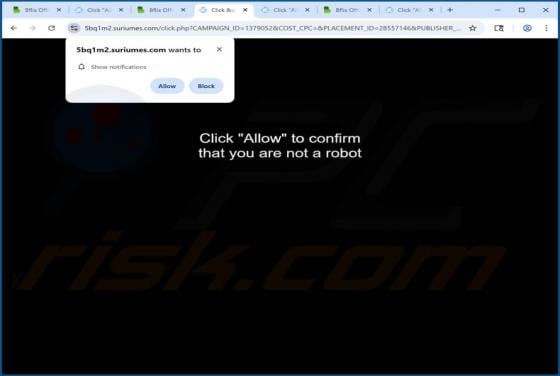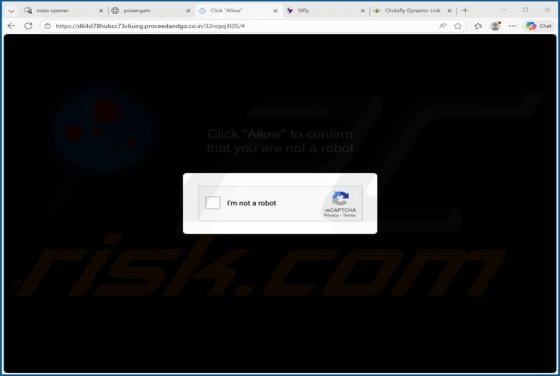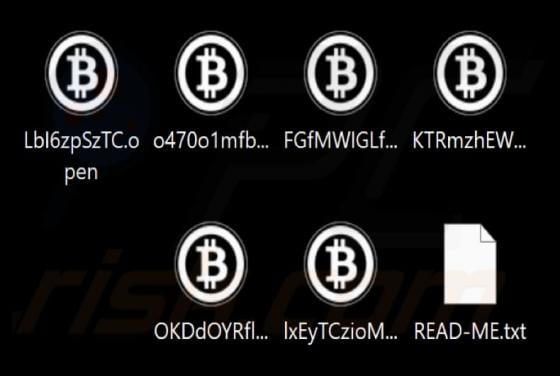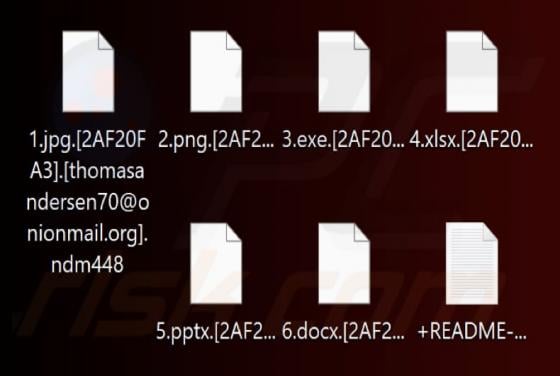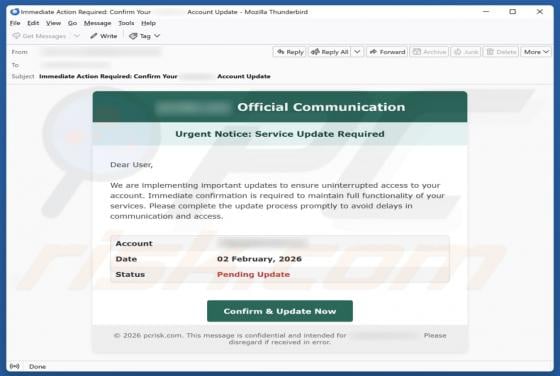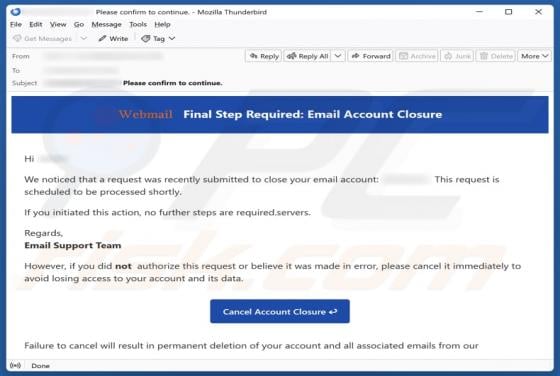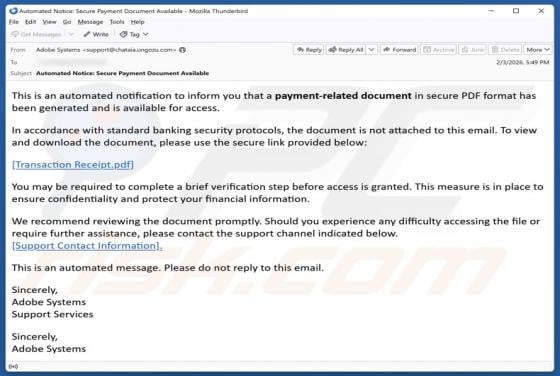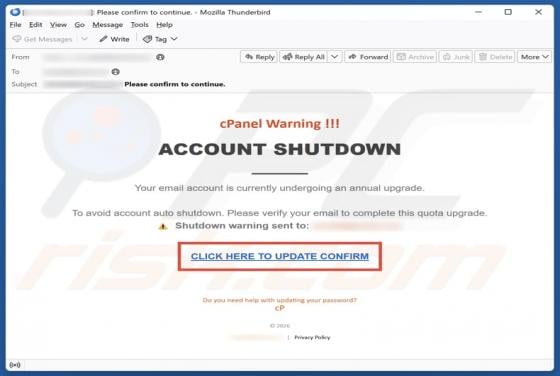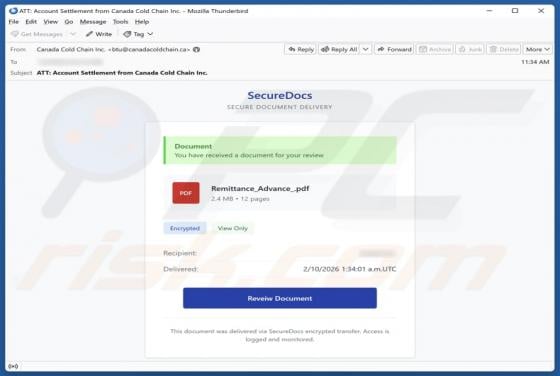
SecureDocs Document Delivery Email Scam
Our team has concluded that this is a scam email claiming that the recipient has received a document for review. It is used to promote a fraudulent website designed to steal personal information. Scams of this type are classified as phishing attempts. Recipients should not respond to such emails a
